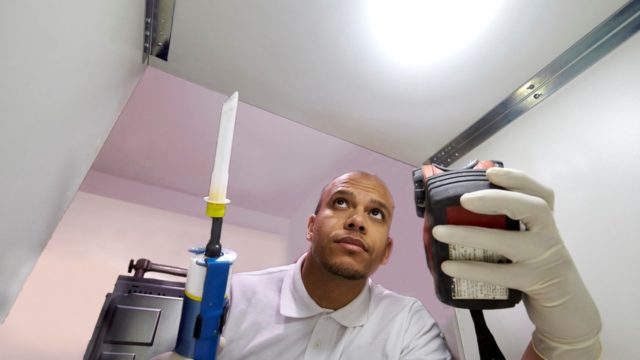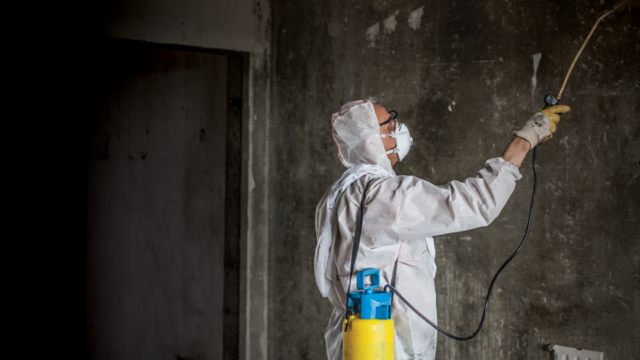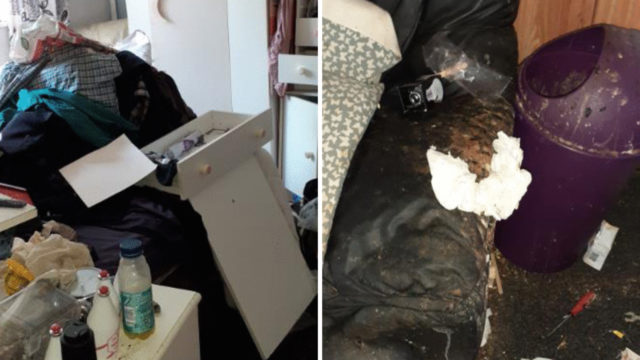A fire in your home or business premises can be an utterly devastating experience. Even if the fire services are able to put out the flames relatively quickly, damage is unavoidable, both to the contents of the building and to the structure itself.
Whether you’ve got just a little damage or something more serious, professional fire aftermath cleaning is essential to minimise the risk to the building’s structural integrity, as well as to reduce the cost of remediation.
What should I do in the event of a fire at my home or business?
If you’ve been unfortunate enough to have experienced a fire in your home or workplace, there are things that you can do to advance the recovery process. Depending on the amount of damage, it may not be safe to re-enter the building, so always err on the side of caution.
- Always cooperate with the fire department’s instructions and do not re-enter the building unless the fire department has declared that it is safe to do so
- Do not enter a flooded building if the electricity is on or if there is a risk of contamination
- Once it is safe to enter, open windows and doors to ventilate the building
- Take wet fabrics such as rugs and cushions outside to allow the building to dry out more quickly
- If you are able to move furniture outside to dry then do so. Otherwise, try to place barriers between furniture and the damp floor to prevent water absorption and further damage. This could be tin foil, wooden blocks or even just plates from the kitchen
What damage should I expect after a fire?
Along with the damage caused by the fire itself, there will also be secondary damage and staining caused by soot and smoke, and water damage from the firefighting efforts.
Ash residue is acidic, meaning that it corrodes surfaces over time. Without professional cleaning, furniture, walls and carpets will show permanent signs of staining and wear, and paint and wood finishes may become eaten away over time. This means that decoration and furnishings that may have been salvageable at the time of the fire may quickly require replacement.
While a thorough clean may look like it has removed all traces of smoke and soot, tiny particles that are too small to be seen by the naked eye may still remain. Smoke particles can be inhaled by the building’s occupants, leading to irritation of the lungs and potential respiratory problems in the long term.
Many people don’t expect to deal with water damage after a fire, but if firefighters have extinguished the flames then a large amount of water will likely been pumped in. If the water is not professionally removed and dried out, you will find yourself facing further damage in the future, which may come in the form of rot, damp, mould, odours or pests.
What does a professional fire damage cleaning service entail?
CleanSafe employs highly trained BDMA-qualified technicians to ensure that your home or business premises are professionally restored.
We have branches nationwide, with industry leading response times. This industry-leading response time allows us to mitigate the damage, remedying the effects of water and smoke damage as quickly as possible.
Our fire damage restoration team will pump out any remaining water before clearing out the ash and debris, salvaging as many items as possible and disposing of anything that is dangerous or beyond recovery.
We then use a method of high-tech cleaning processes to ensure that all traces of smoke and ash are removed, and that odours are completely eradicated. Finally, our expert rapid drying process will ensure that the building is completely dry to avoid further damage.
Because we understand how devastating a fire can be, we will also deal with your insurance company, letting you get back to more important things.
CleanSafe are on hand 24/7 to expertly remedy smoke and water damage to your building after a fire.





